The Festival Where Millions of Women Prepare a Feast for a Goddess
On the ninth day of Attukal Pongala, an entire city is devoted to women and their sacred offering.
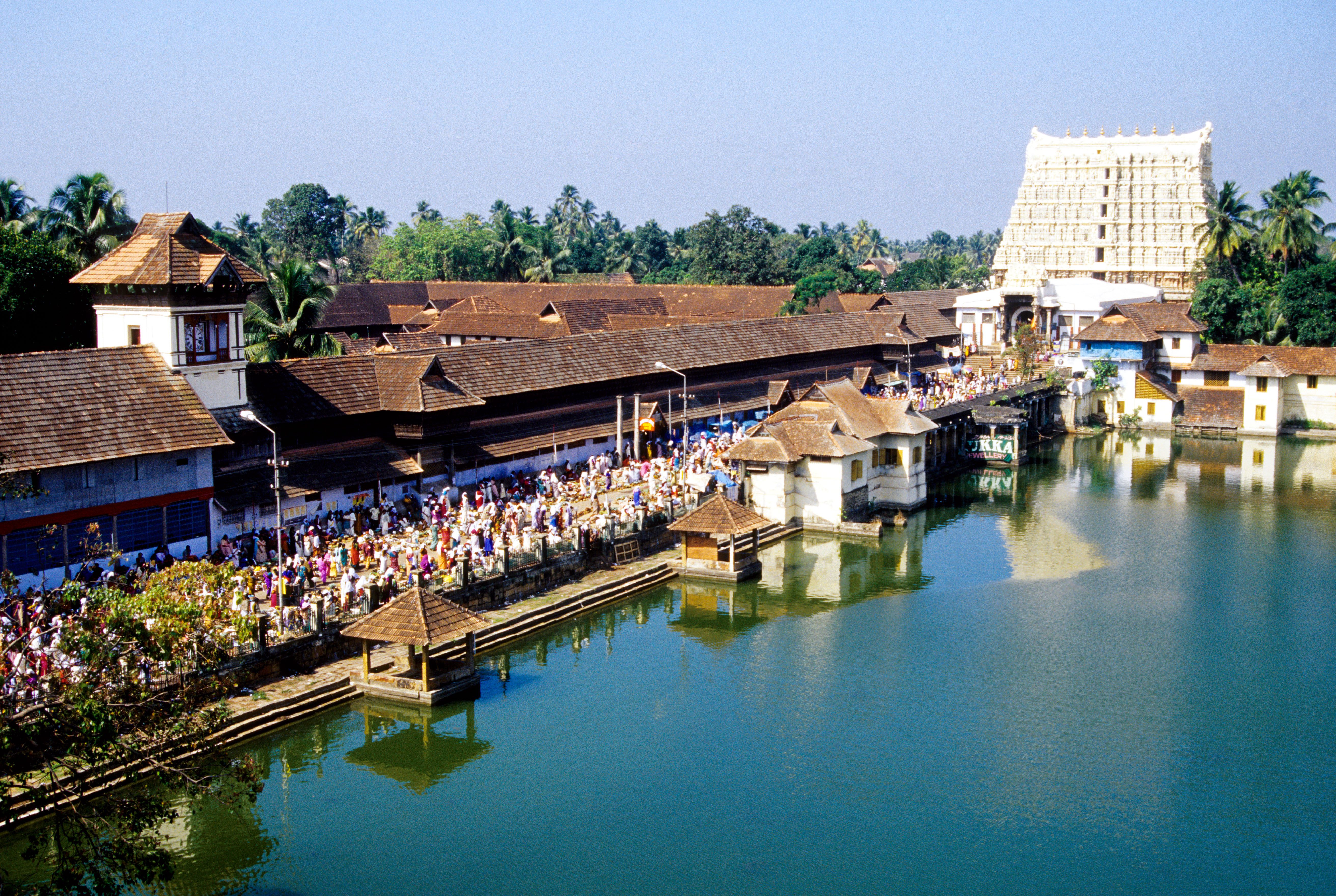
The sun has not yet risen, but Thiruvananthapuram, the capital city of Kerala, India, is buzzing with activity. The moonlit streets are lined with vendors hawking everything from plastic children’s toys to jasmine headdresses. Thousands of speakers are turned up to full blast, playing an eclectic mix of pop and devotional music. It’s only 4 a.m., but for nearly 15 miles, the streets are crowded with women gathering bricks, washing rice, and grating coconuts.
“On all other days it is not safe for women to be alone on the streets at night,” says Lekshmy Rajeev, the author of Attukal Amma: The Goddess of Millions. “But on Pongala, things change. It is almost 24 hours, and women are everywhere.”
Once a year, millions of women from all over India travel to Thiruvananthapuram to participate in a massive ceremony that is considered the largest spiritual gathering of women in the world. The event centers around the offering of Pongala, rice pudding made with ghee, coconut, and jaggery (unrefined cane sugar), boiled out in the open in small clay pots.

Women purchase a new vessel every year, carefully selecting from the mountains of pots displayed throughout the city. The basic ingredients of the porridge are simple and affordable, making the ceremony accessible to any woman who wants to participate. “All the Goddess wants is a handful of rice. She doesn’t want diamonds, gold, or elephants, just simple porridge,” says Rajeev. “It makes you feel like she is someone like you. I don’t have to worry whether or not she is going to like it.”
The mass cooking ritual occurs on the ninth day of Attukal Pongala, an annual festival dedicated to the Hindu goddess Bhadrakali, the fierce incarnation of Devi, who annihilates evil and brings prosperity to her followers. In this form, she is black or blue in color, wields a sword and sickle, and wears a necklace of skulls and a belt of severed heads. The ferocious deity is believed to embody fury as well as benevolent protection, and is often worshipped as a universal mother figure. In fact, the temple’s Goddess is best known by another, more affectionate name: Attukal Amma, or Mother.
During Pongala, Thiruvananthapuram transforms into a sacred kitchen. Millions of women place millions of makeshift stoves side-by-side, forming a concentric circle around the Attukal Bhagavathy Temple. Devotees claim all available public space, setting up temporary hearths on streets, sidewalks, courtyards, bus stations, and railway platforms. Then the women wait. Some chant fervently; others bend their heads in quiet contemplation. All are carefully listening to the thottam pattu being sung over the loudspeakers, which builds and builds as the accompanying drums beat louder and faster.
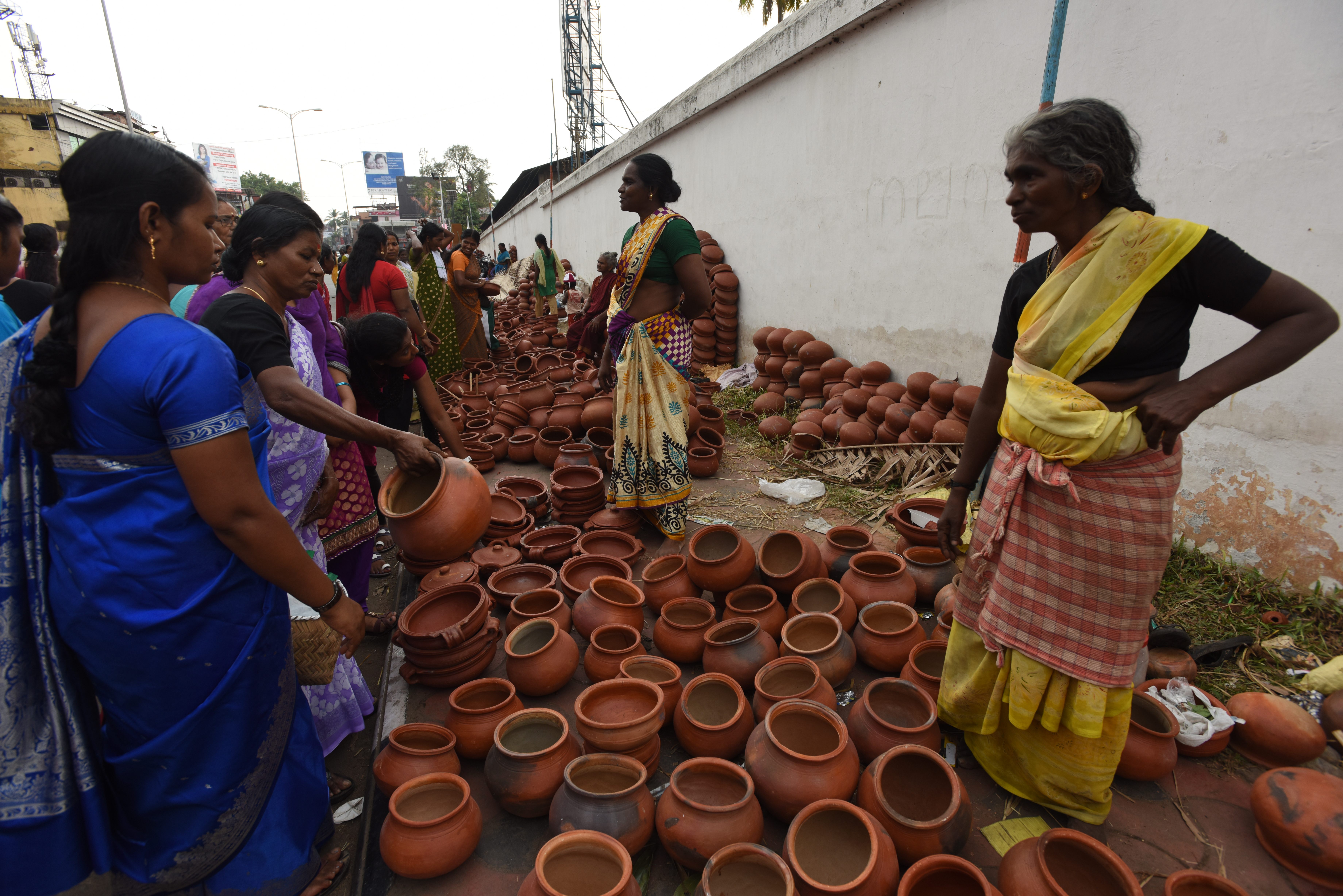
According to the song’s myth, the King of Madurai unlawfully executes the Goddess’s husband. In retaliation, she beheads the king and burns down the city of Madurai. At this moment in the story, the lead singer of the Thottam Pattu lights the main hearth in front of the temple, commencing the ritual.
In a matter of seconds, the news is spread throughout the city by loudspeaker, text message, and television screen. “It happens at the same time, in the same moment, everywhere across the city,” says Rajeev. Four million women strike their matches, light their cooking fires, and prepare Pongala for Attukal Amma.
The air fills with smoke and heat from millions of small fires fueled by bundles of dried coconut-palm leaves. With sweat and tears streaming down their faces, waves of women wait for water to boil, moving slowly and cautiously to prevent accidentally setting themselves or their neighbors on fire.
When the time comes, a handful of rice is sprinkled over the top of each pot, followed by three other handfuls in rapid succession. Not a single grain can touch the ground. Time passes, tension builds, and inside each woman’s pot, a creamy white foam begins to rise. The women stir their porridge and feed their flames until, finally, the pot overflows, signaling that the Goddess has accepted the offering.
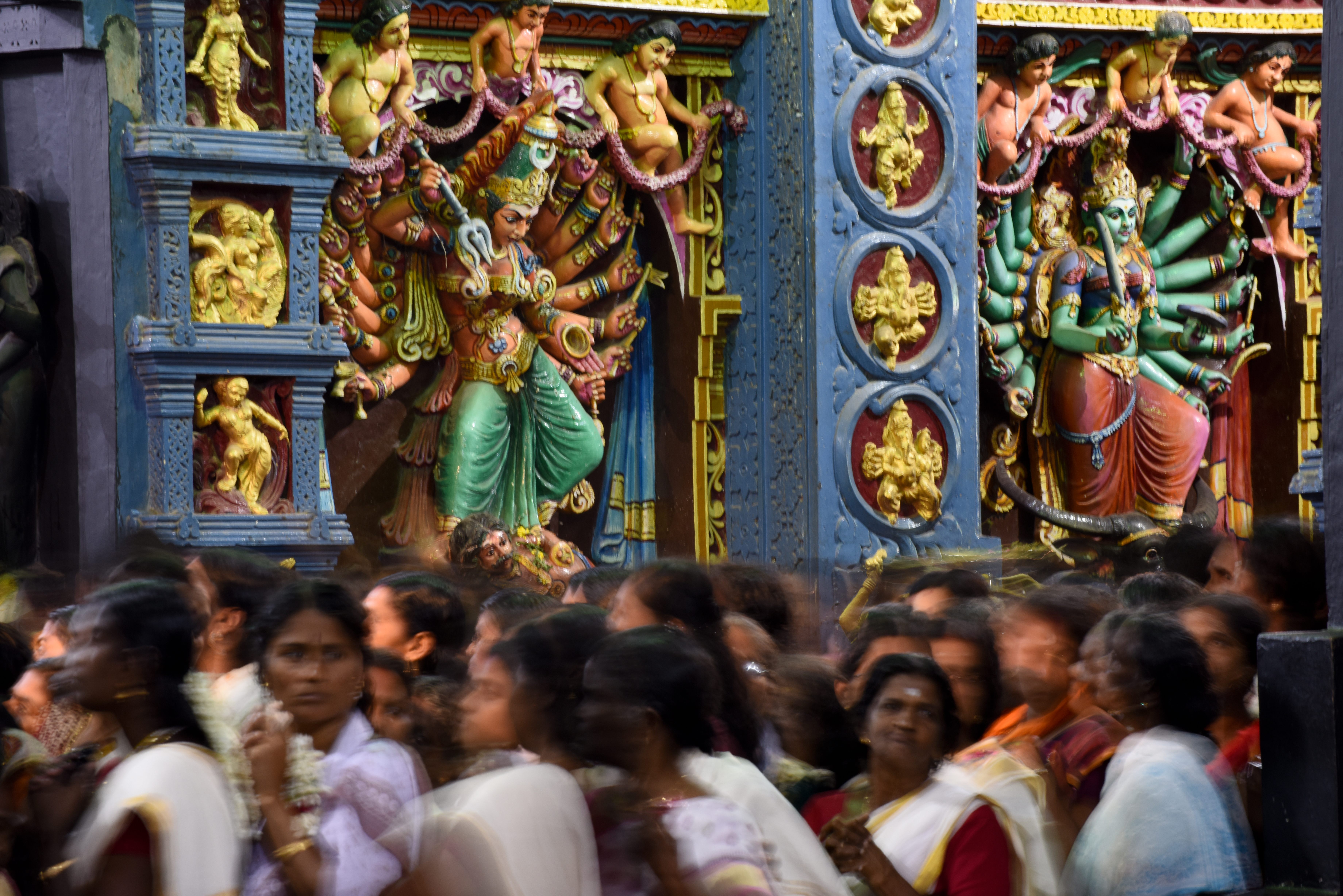
“It’s such a fulfilling experience,” says Rajeev. “Everyone around you is crying and praying. Hundreds, thousands of women all crying out ‘Amma,’ and you are also crying out ‘Amma.’”
It is not uncommon for women to offer more than one pot, particularly after a major event. For example, the year Rajeev’s children were born, her mother offered 108 pots to Amma. “That takes a long time,” says Rajeev. “It’s very hot and muggy. The streets are full of clouds, heat, and fire, so it is difficult to offer even one pot.”
Hours later, after the ululations have hushed and the fires have faded to ash, a parade of priests emerges from the temple with pails of sanctified water. The procession snakes slowly across the city, sprinkling the water into pot after pot after pot. One by one, the women gather up their belongings and head home, sharing spoonfuls of Pongala with friends, family, and strangers along the way.
For Amma’s devotees, Attukal Pongala is a joyous occasion, a blissful break from their daily duties and routines, and an unique opportunity to celebrate with other women. The holiday is also associated with an abandonment of traditional expectations and responsibilities. “Kerala is a very conservative society, but on this particular day women are treated like goddesses,” says Rajeev. “You can go out at midnight. You can wander in the street. You can do whatever you want to do … These things are very rare in our life.”
While men participate in other parts of the 10-day festival, the Pongala ritual is performed exclusively by women. Men are not allowed near the temple without special passes and often stay home, quietly supporting their wives, mothers, sisters, and daughters as they offer Pongala for the benefit of the entire family. When the ceremony is over, they slowly reappear on the streets, giving the exhausted pilgrims food, water, and rides home.

On this one day, the city’s attention, resources, and spaces are completely devoted to women. Everyone aids the women, understanding that in doing so, they are helping the Goddess as well. Thousands of policemen and firemen ensure their safety, bus and train fares are temporarily waived, and auto-rickshaw drivers volunteer to transport devotees. Mosques and churches participate too, providing thousands of pilgrims with food, water, and free lodging.
According to Dianne Jenett, a researcher and professor of women’s spirituality, who has studied and participated in Attukal Pongala for over 20 years, Pongala is an ancient offering, rooted in the sacred practices of the Dalit or “untouchable” caste. In the past, it was offered exclusively by Dalit women as a part of rural community rituals centered around agricultural fields and sacred groves. Women of the upper castes sometimes supplied the ingredients, but never offered Pongala themselves. Over the last century, the offering evolved into a mammoth ritual that attracts women from all social and economic backgrounds.
It’s believed that on this day, Amma comes out from the temple to prepare her own pot of Pongala, physically manifesting as one of the millions of women laughing, praying, crying, and cooking on the streets. During the Attukal Pongala festival, any woman can be the Goddess.
Gastro Obscura covers the world’s most wondrous food and drink.
Sign up for our email, delivered twice a week.



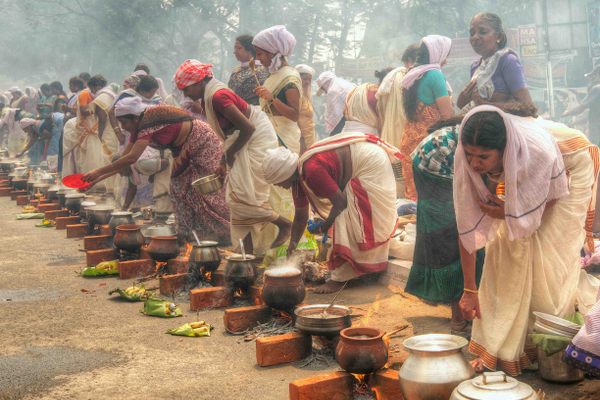



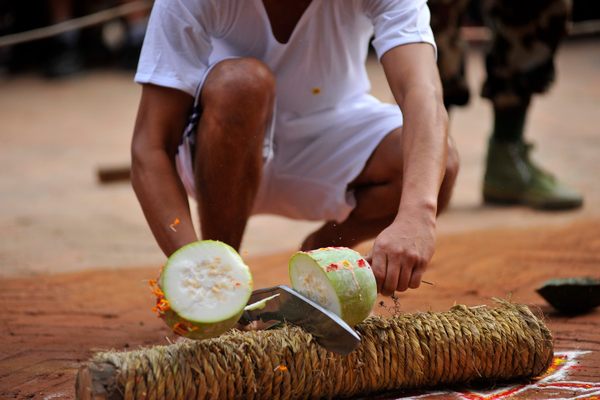






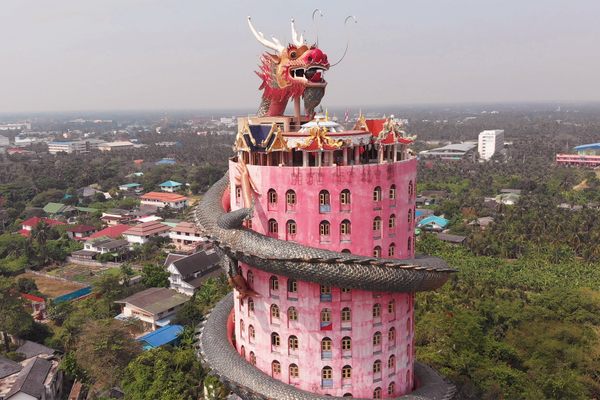

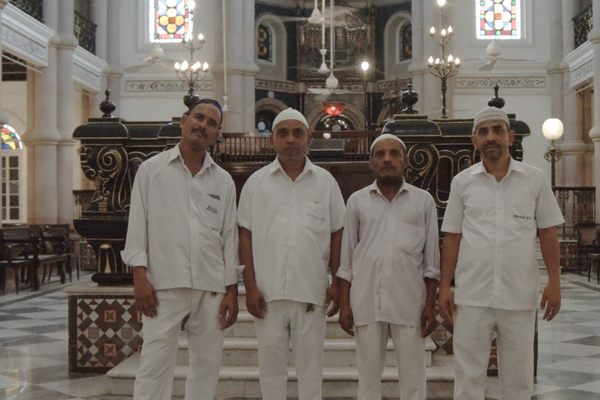











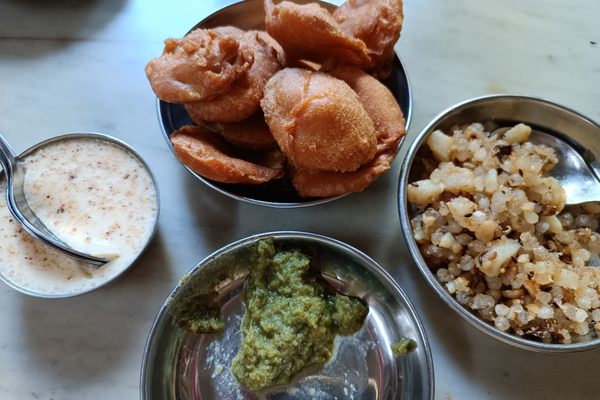


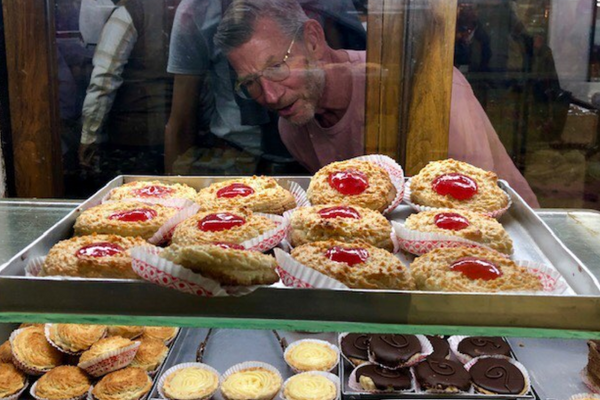





Follow us on Twitter to get the latest on the world's hidden wonders.
Like us on Facebook to get the latest on the world's hidden wonders.
Follow us on Twitter Like us on Facebook